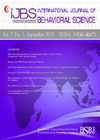Thai Conceptualizations of Forgiveness within a Work Context: Comparison with Western Models
Main Article Content
Abstract
Forgiveness research has focused almost exclusively on individualistic Western culture despite acknowledgement of the importance of cultural factors. Conflict at work is common yet studies of forgiveness in work contexts are rare, as are qualitative studies. Addressing these short-comings, this study examines the forgiveness process as experienced by Thai nurses in a hospital within a collectivist culture heavily influenced by Buddhism. Thirty nurses were interviewed about a situation at work where the need for forgiveness arose. Qualitative methods were used to identify participants' cognitions, emotions, and behaviors in relation to the offensive event. Definitions of forgiveness were also elicited. Four continuous stages of the forgiveness process emerged: an experiencing stage, re-attribution stage, forgiveness stage, and behavioral stage. There were similarities with Western individualistic models but also some important differences related to Buddhism and Thai culture. Five dimensions of forgiveness emerged from the Thai definitions: overcoming negative approaches towards the offender, abandonment of negative judgment, fostering of positive approaches and loving-kindness towards the offender, awareness of the benefits of forgiveness, and forgiveness as incorporated within Buddhist beliefs. The results highlight the need to consider cultural influences when examining concepts like forgiveness.


